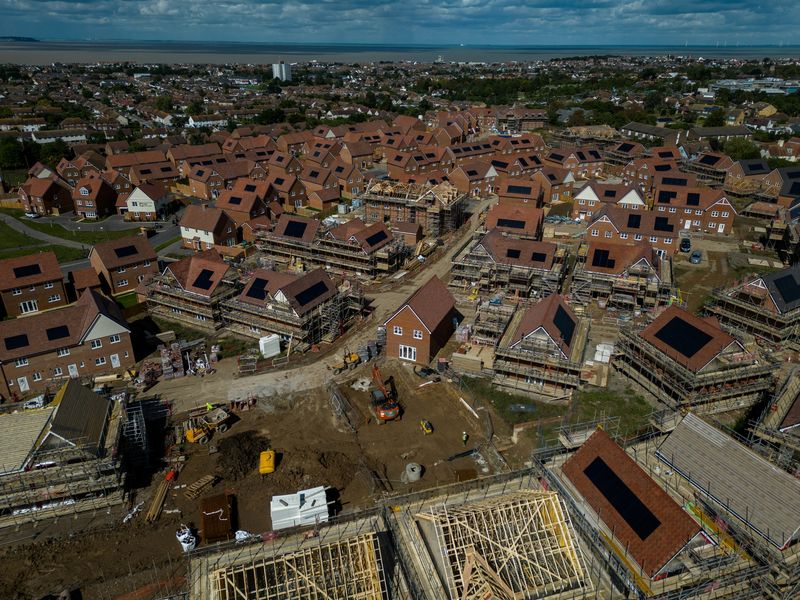LONDON (Reuters) -British lenders approved the most mortgages for house purchase since August 2022 last month but consumer credit growth slowed slightly to its weakest in nearly two years, Bank of England data showed on Friday.
Lenders approved 68,303 mortgages for house purchase in October, rising from 66,115 in September and exceeding all forecasts in a Reuters poll of economists, which had pointed to a fall to 64,500.
Net mortgage lending jumped by much more than expected to 3.435 billion pounds ($4.36 billion) in October, the most since September 2022 and up from 2.573 billion pounds the month before.
Mortgage approvals fell sharply in late 2022 after interest rates surged following former Prime Minister Liz Truss' "mini budget" shocked bond markets. Lending was slow to recover after, as the BoE continued to raise interest rates to curb double-digit inflation.
The BoE began to cut rates from a 15-year high of 5.25% this August and reduced them again earlier this month to 4.75% as inflation had returned to close to its 2% target.
However, consumer demand remains relatively soft and some economists said that concern about higher taxation in the run-up to new finance minister Rachel Reeves' first annual budget on Oct. 30 appeared to have held back spending.
"While the fading drag from higher interest rates appears to be continuing to support the housing market, the deterioration in consumer confidence ahead of the budget looks like it has influenced households' spending decisions," Ashley Webb, UK economist at Capital Economics, said.
Annual consumer credit growth slowed to its weakest since January 2023 at 7.3% in October from 7.5% the month before.

Net unsecured consumer lending rose 1.098 billion pounds on the month in October, at the bottom end of the range of economists' forecasts and down from growth of 1.221 billion pounds in September.
($1 = 0.7878 pounds)